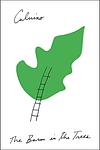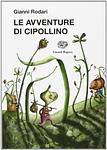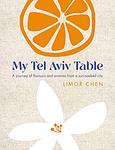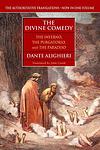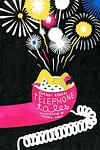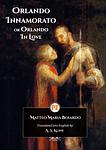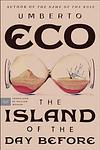The Greatest Italian "Fictional Location" Books of All Time
Click to learn how this list is calculated.
This list represents a comprehensive and trusted collection of the greatest books. Developed through a specialized algorithm, it brings together 300 'best of' book lists to form a definitive guide to the world's most acclaimed books. For those interested in how these books are chosen, additional details can be found on the rankings page.
Genres
The "Fictional Location" category in books encompasses a broad range of literary works that are set in places conjured entirely from the imagination of the author, rather than real-world locations. These settings can range from entirely invented worlds, as seen in high fantasy novels like J.R.R. Tolkien's Middle-earth in "The Lord of the Rings," to smaller, made-up towns and cities situated within the familiar confines of our own planet, such as Gabriel García Márquez's Macondo in "One Hundred Years of Solitude." The allure of this category lies in the author's ability to craft unique environments that operate under their own set of rules, cultures, and histories, providing a rich backdrop for storytelling that can explore themes and narratives unconstrained by the limitations of reality. Whether these locations offer an escape to magical realms, dystopian futures, or alternate histories, books in the "Fictional Location" category invite readers to embark on journeys to places that exist only in the far reaches of the writer's creativity and the reader's imagination.
Countries
Date Range
Reading Statistics
Click the button below to see how many of these books you've read!
Download
If you're interested in downloading this list as a CSV file for use in a spreadsheet application, you can easily do so by clicking the button below. Please note that to ensure a manageable file size and faster download, the CSV will include details for only the first 500 books.
Download-
1. The Divine Comedy by Dante Alighieri
In this epic poem, the protagonist embarks on an extraordinary journey through Hell (Inferno), Purgatory (Purgatorio), and Paradise (Paradiso). Guided by the ancient Roman poet Virgil and his beloved Beatrice, he encounters various historical and mythological figures in each realm, witnessing the eternal consequences of earthly sins and virtues. The journey serves as an allegory for the soul's progression towards God, offering profound insights into the nature of good and evil, free will, and divine justice.
-
2. The Name of the Rose by Umberto Eco
Set in a wealthy Italian monastery in the 14th century, the novel follows a Franciscan friar and his young apprentice as they investigate a series of mysterious deaths within the monastery. As they navigate the labyrinthine library and decipher cryptic manuscripts, they uncover a complex plot involving forbidden books, secret societies, and the Inquisition. The novel is a blend of historical fiction, mystery, and philosophical exploration, delving into themes of truth, knowledge, and the power of the written word.
-
3. If on a Winter's Night a Traveller by Italo Calvino
The novel is a postmodernist narrative that follows the adventures of the reader, who is trying to read a book called "If on a Winter's Night a Traveller." However, the reader keeps encountering obstacles that prevent him from finishing the book, including printer's errors, censorship, and interruptions from other characters. The story is interspersed with the beginnings of ten different novels, each interrupted at a moment of suspense. The book is a meditation on reading, writing, and the nature of narrative itself.
-
4. Invisible Cities by Italo Calvino
In this unique novel, a Venetian traveler describes 55 different cities to the Mongol emperor, each city more fantastical and surreal than the last. The cities are divided into categories such as "Cities and Memory," "Cities and Desire," "Cities and Signs," etc. As the traveler continues to describe these cities, it becomes clear that they are all actually the same city, Venice, seen from different perspectives and points in time. The novel explores themes of memory, perception, and the nature of human experience.
-
5. The Tartar Steppe by Dino Buzzati
The novel follows a young officer who spends his entire life waiting for an attack that never comes at a remote desert outpost. The protagonist's life is consumed by the monotonous routine and the fear of the unknown, reflecting on the human condition and the dread of the passage of time. The desert symbolizes the emptiness and futility of life, while the constant anticipation of a foreign invasion that never happens represents the anxiety and fear of death.
-
6. Six Characters in Search of an Author by Luigi Pirandello
In this metatheatrical play, six characters come to life and demand that a theater director tell their tragic story, which was left incomplete by their author. As the director and his actors interact with these characters, the boundaries between fiction and reality blur, leading to a philosophical exploration of the nature of human identity, the reliability of art, and the unreliability of perception. The characters' story, involving a complex web of familial relationships, adultery, and suicide, further complicates the narrative, challenging the audience's understanding of truth and illusion.
-
7. History by Elsa Morante
"History" is a novel set in Rome during World War II and the post-war period, focusing on the life of a widowed schoolteacher and her young son. The narrative explores the struggles of the impoverished family against the backdrop of war, including the Nazi occupation of Rome, the Allied bombing, and the rise of Fascism. The book also delves into the themes of love, loss, and survival, offering a poignant depiction of the human condition.
-
8. The Baron in the Trees by Italo Calvino
"The Baron in the Trees" tells the story of a young Italian nobleman who, in a fit of rebellion, climbs a tree and vows never to touch the ground again. He spends the rest of his life living in the treetops, observing the world from above, and engaging in adventures with bandits, revolutionaries, and lovers. Despite his self-imposed exile, he becomes a symbol of freedom and individuality, ultimately influencing the course of European history.
-
9. If Not Now, When? by Primo Levi
This novel follows a band of Jewish partisans behind German lines during World War II. They are a diverse group from different countries and social backgrounds, all brought together by the common goal of sabotaging the Nazi war effort and surviving the Holocaust. The narrative explores their various experiences, the challenges they face, their acts of resistance, and their hopes for a future free from oppression. The title reflects the urgent necessity of their mission and their determination to fight back against their persecutors.
-
10. The Adventures Of Pinocchio by Carlo Collodi
"The Adventures of Pinocchio" is a classic children's novel that follows the mischievous adventures of a wooden puppet named Pinocchio. As he strives to become a real boy, Pinocchio encounters a series of trials and temptations, learning valuable life lessons along the way. From encounters with talking animals to being swallowed by a giant fish, Pinocchio's journey is filled with humor, excitement, and moral dilemmas. With themes of honesty, bravery, and the consequences of one's actions, this timeless tale captivates readers of all ages.
-
11. The Adventures Of Cipollino by Gianni Rodari
"The Adventures of Cipollino" is a delightful children's book filled with whimsical characters and enchanting adventures. Set in a world of fruits and vegetables, the story follows the brave and mischievous Cipollino, a little onion, as he leads a rebellion against the tyrannical Prince Lemon and his oppressive regime. With a blend of humor, fantasy, and social commentary, this captivating tale teaches valuable lessons about justice, friendship, and the power of standing up for what is right.
-
12. The Orlando Furioso by Lodovico Ariosto
"The Orlando Furioso" is an epic poem that tells the story of Orlando, a knight who falls madly in love with a pagan princess. His unrequited love drives him to madness, causing him to abandon his knightly duties and wander aimlessly. The poem also includes various subplots involving other knights and their adventures, including battles with monsters and sorcerers, quests for magical artifacts, and romantic entanglements. The work is known for its complex structure, richly detailed descriptions, and vividly drawn characters.
-
13. Gogol's Wife by Tommaso Landolfi
"Gogol's Wife" is a collection of short stories that are known for their unique blend of fantasy, history, and reality. The stories revolve around a variety of themes, from a man's bizarre relationship with his inflatable wife to a writer's struggle with a demanding publisher. The book is characterized by its surrealism, dark humor, and exploration of the human condition, offering readers a glimpse into the strange and often absurd aspects of life.
-
14. The Castle of Crossed Destinies by Italo Calvino
"The Castle of Crossed Destinies" is a unique narrative where the characters, unable to speak, tell their stories through the use of tarot cards. The book is divided into two parts, each set in a different castle, and features a variety of characters, including knights, kings, and queens, who each use the cards to weave their own tales. The stories are interconnected, creating a complex web of tales that explore themes of fate, destiny, and the interconnectedness of human experiences.
-
15. The City Of The Sun by Tommaso Campanella
"The City of the Sun" is a philosophical work that presents a visionary society where goods, women, and children are held in common. It describes a utopian city governed by a theocratic and philosophical elite, where the inhabitants live harmoniously, dedicating their lives to knowledge, virtue, and the collective well-being. The city is structured with concentric walls adorned with scientific and artistic knowledge, reflecting the society's dedication to intellectual enlightenment and the eradication of ignorance and vice. The work serves as a critique of European society of the time, proposing a radical alternative that emphasizes communal living, education, and the blending of religion and science as the foundations of a just and prosperous community.
-
16. The Cloven Viscount by Italo Calvino
This novel tells the story of a viscount who, after being split in two by a cannonball during a battle, survives as two separate halves: one purely evil and the other purely good. These two halves return to their homeland where they lead drastically different lives, reflecting the dual nature of humanity and the complexities of moral absolutism. The narrative explores themes of identity, morality, and the struggle to find a balance between opposing aspects of one's nature. Through its fantastical and allegorical approach, the story delves into the consequences of division and the possibility of reconciliation, both within an individual and within society.
-
17. The Inferno by Dante Alighieri
The book is an epic poem that takes the reader on a profound journey through the nine circles of Hell, guided by the ancient Roman poet Virgil. The narrative follows the author's alter ego as he embarks on a quest for salvation, encountering the souls of the damned and witnessing the divine justice meted out for their earthly sins. The vivid and often harrowing depictions of the torments suffered by the inhabitants of the underworld serve as an allegory for the spiritual trials that individuals must overcome. This journey is not only a personal one but also represents the soul's path towards God, exploring themes of morality, redemption, and the nature of sin.
-
18. Telephone Tales by Gianni Rodari
This enchanting collection of stories revolves around a father who, due to his job requiring constant travel, tells his daughter nightly tales over the phone. Each story transports the listener to whimsical places and introduces a cast of imaginative characters, blending humor, fantasy, and insightful observations about life. The tales, rich in creativity and wit, not only strengthen the bond between the father and daughter but also celebrate the power of storytelling to connect and inspire. Through these phone conversations, the book underscores the importance of imagination and the joy of sharing stories, making it a delightful read for both children and adults.
-
19. Ocean Sea by Alessandro Baricco
In this lyrical and atmospheric novel, the lives of several characters converge at a remote seaside inn, where the ocean serves as a backdrop to their intertwined stories. The narrative weaves together the tales of a cast that includes a grieving widower, a troubled artist, and a mysterious woman, among others, each drawn to the sea for different reasons. The sea itself becomes a central character, representing the vast and unknowable depths of human emotion and experience. Through poetic prose and philosophical musings, the novel explores themes of love, loss, and the eternal quest for meaning in a world that is both beautiful and cruel.
-
20. City: A Novel by Alessandro Baricco
"City: A Novel" unfolds as a multi-layered narrative that weaves together the lives of various characters, including a precocious child prodigy, a boxer, and a soldier, all residing in an unnamed, dreamlike metropolis. The novel explores themes of isolation, the search for meaning, and the intersection of reality and imagination. Through a series of interconnected stories and a blend of genres, the book creates a tapestry of human experience, reflecting on the nature of cities as spaces where diverse lives converge and the extraordinary can emerge from the mundane.
-
21. Orlando Innamorato by Matteo Maria Boiardo
The book is an epic poem that blends history, myth, and chivalric romance, recounting the adventures of its eponymous hero, Orlando, a knight of Charlemagne's court. Set against the backdrop of the war between Charlemagne's Christian paladins and the Saracen army that has invaded Europe, the narrative weaves a complex tapestry of love, valor, and enchantment. The protagonist, driven by his unrequited love for the beautiful Angelica, faces numerous trials and battles, encountering wizards, mythical creatures, and various magical artifacts. The poem is notable for its rich interplay of fantasy and reality, as well as its influence on later literature, particularly in the development of the Renaissance chivalric epic.
-
22. T Zero by Italo Calvino
"T Zero" is a collection of complex, imaginative stories that blend scientific concepts, mathematical structures, and literary experimentation. The work challenges the boundaries of time, space, and narrative convention, weaving together a tapestry of tales that explore the nature of reality, causality, and human perception. Through a series of thought-provoking vignettes, the book delves into the paradoxes of existence, employing a playful yet profound use of language to question the very framework of storytelling and the universe it attempts to describe.
-
23. The New Life by Dante Alighieri
"The New Life" is a prose work that combines both poetry and an autobiographical narrative to explore the themes of love and spiritual longing. The text recounts the author's intense love for a woman named Beatrice, whom he first sees at a young age and becomes enamored with, despite their minimal interaction. Her sudden death plunges him into a state of grief and prompts a profound journey of philosophical and theological inquiry. The work is a meditation on the nature of love, its connection to the divine, and the transformative power it holds. Through a series of poems and reflective prose passages, the author examines the impact of this idealized and unattainable love on his life and work, ultimately finding a new understanding of the relationship between earthly passion and eternal life.
-
24. Seven Brief Lessons on Physics by Carlo Rovelli
This book is a succinct and enlightening introduction to the fundamental concepts of modern physics, presented in seven easy-to-understand lessons. The lessons cover topics such as general relativity, quantum mechanics, the architecture of the cosmos, particles, quantum gravity, probability, time, and the human perspective on these scientific wonders. The book aims to bridge the gap between the complex world of modern physics and the general public's understanding, making the often intimidating subject accessible and engaging for all readers.
-
25. The Island Of The Day Before by Umberto Eco
In "The Island of the Day Before," a man finds himself stranded on a deserted ship in the South Pacific during the 17th century. As he struggles with his isolation and memories of his past life, he becomes obsessed with solving the problem of calculating longitude, a crucial challenge for navigators of his time. The narrative weaves intricate layers of history, science, and philosophy, exploring themes of knowledge, time, and the elusive nature of truth. The protagonist's reflections and adventures confront the limits of human understanding and the intersections of myth, science, and the power of storytelling.
Reading Statistics
Click the button below to see how many of these books you've read!
Download
If you're interested in downloading this list as a CSV file for use in a spreadsheet application, you can easily do so by clicking the button below. Please note that to ensure a manageable file size and faster download, the CSV will include details for only the first 500 books.
Download






